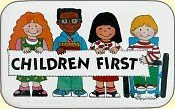I just received a comment about "International Day in Memory of SSRI Fatalities" that made me realize how unaware people are of the problem.
SSRIs and SRNIs are drugs like Prozac and Effexor and they don't only causes violent behavior.
I will repost some data about other problems caused by this class of antidepressants. I am amazed that people are so unaware of this problem and think that they are not in danger. This is very serious and this is why many bloggers are trying hard without any payment to try to convey what the mainstream media doesn't because they are part of the problem.
It's a very hard job to make this blogs and I had to stop it because it really made me sad and was affecting me in a terrible way.
We are all saying what we have experienced or what we saw people experiencing and still some people think that we are here, I don't even know what they think. Read the blog! Read Furious Seasons, read Seroxat Sufferers, Alison Bass and many others. It's not only SSRI antidepressants: most of the medicines that are at the market are causing harms and I just stressed this because I think that if a healthy 19 years old woman hangs herself during a clinical trial, four other people were also hurt because of the same clinical trial and this information is not hidden and the drug is on the market I don't know what else can happen.
Medicine is corrupted that is the main problem. That is why Senator Charles Grassley is doing his job.
Excerpts from the review "The Influence of the Pharmaceutical Industry" published in 2005:Professional and patients Education p.25
74. Education for patients is provided in a variety of ways, including disease awareness campaigns, which are discussed in detail in Part 8.Such campaigns are designed to increase awareness among the general public of particular conditions that may be under-reported or under-diagnosed and to encourage people to seek treatment. Often, such campaigns are sponsored by a drug company and may bear a company ’s logo they may be also endorsed by a charity or patient organization and/or supported by a celebrity. P. 27
The promotion of Drugs
77. Prescription-only medicines may be promoted only to healthcare professionals, except in very specific cases such as Government-endorsed vaccination programmes. Promotion to prescribers may take many forms:
a) Drug company representatives. Approximately 8,000 drug company representatives operate in the
79. A critical element of the work of medical communications companies is the recruitment and training of key opinion leaders (KOLs), who are usually ‘authoritative third parties ’ such as physicians at the top of their field. These individuals may be paid to speak and write on behalf of the sponsoring pharmaceutical company. They attend medical conferences, for example, and may present research papers, take part in panel debates or field questions in oral sessions. The ' development' of KOLs, we were told, is a well-worked process involving all types of doctors (hospital consultants, clinical academics and GPs). P. 29
84. The direct advertising of prescription drugs to patients is prohibited. Direct-to-consumer advertising (DTCA) of prescription-only medicines is permitted only in the
248…Dr Spence was especially concerned about the ‘Defeat Depression Campaign ’ and its effect on prescribing patterns and the public ’s perception of depression: [That campaign ] led to us being told that a third of people were depressed, that we should screen for it, that we should start using antidepressants early, and we did. If I think back five or ten years ago, we were diagnosing large numbers of people with depression, and we were prescribing many antidepressants. As time has gone on, I have certainly begun to realize that in some ways yes, there are many people who do have depression, but lots of people are just unhappy and that is a part of life. So there is a whole generation of people coming up who almost feel that being unhappy is and abnormal state, which, of course, it is not.210 p. 71/72
249.The ‘Defeat Depression Campaign ’ ((1992 –1997),which was run through the RCGP and the Royal College of Psychiatrists, and sponsored by the manufacturers of antidepressants (who provided approximately one-third of the funding)targeted doctors as well as patients, in particular to emphasize that these drugs did not cause addiction or dependence. These claims have since been disputed and a warning about withdrawal symptoms is now included in the SPC. The Royal College of Psychiatrists provided supplementary evidence emphasizing that the Defeat depression Campaign had been intended to make it clear “that antidepressant treatment was not appropriate for mild to moderate depression, but effective only for severe or clinical depression ”.211 This important message evidently got lost; indeed there remains much confusion on this point today.212
The
The concept of ‘genetic predisposition to disease’ is therefore one that has gained widespread acceptance in recent years. However, being genetically predisposed to a disease does not mean that it will actually develop – there is an environmental component that interacts with other biological factors, such as the presence of particular disease antibodies.
According to GeneWatch:
I am tired! I will take a break because it is there are so many information that it amazes me that I have to publish it all over again!
Why can't the mainstream media do the job? Why physicians, psychiatrists in the case of this blog, don't raise their voices?
No. They say to their patients: "No! You are not hallucinating and having ataxia because of the drug." "It is all in your head."
I will make a collection of posts "Psych-drugs problems for beginners" and publish the links but not today or tomorrow because I have to easy my mind.
I'm tired of having my words put in disbelief or having to explain it over and over again and look like a lunatic because after all the side effects and withdrawal symptoms are so serious that it is really hard to believe. People simply don't believe that a drug can induce violent behavior. But if a man beats his while while drunk it was because of the alcohol. Funny!
Maybe making a post like this can help.
Or maybe it's time to stop trying to raise awareness. It's too damn hard! Too damn hard!
















No comments:
Post a Comment